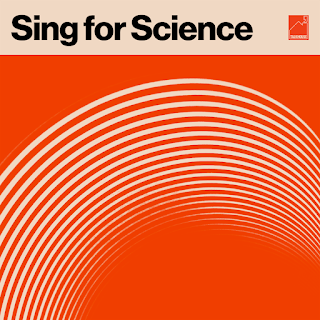Sometimes, combining foods can bring out the most amazing tastes and smells. How about mac and cheese? Or chips and salsa? Or biscuits and gravy?
That's the intrinsic beauty of stitching together music and science in a podcast. That's the definition of the Sing For Science podcast.
On the latest installment of Sing For Science on the Talkhouse Podcast Network, the podcast shows it is ready to entertain and answer the most morbid of curiosities. In an episode entitled “Dead Bodies Everywhere: Postmortem Biology and The Curious Lives of Human Cadavers,” Sing For Science host, creator and musician Matt Whyte puts legendary metalhead and Korn frontman Jonathan Davis in conversation with best-selling pop science writer Mary Roach (Stiff: The Curious Lives of Human Cadavers), to discuss mortuary science and demystify the macabre.
The interview is centered around Korn’s song “Dead Bodies Everywhere,” off of their 1998 album Follow the Leader - which sold over 14 million copies and was partly based on Davis’ own experience working in a morgue prior to forming Korn. Just a junior in high school when he began doing post-mortems out of the coroner's office in his hometown of Bakersfield, CA, Davis went on to study at San Francisco’s College of Mortuary Science, where coincidentally, Mary Roach also attended. Driven by a need to shed light on the darker parts of life, Davis and Roach share a deep interest in America’s death-denying culture, using Sing For Science as a platform to launch into these subjects without fear, and instead with a sharp focus on the realities of death, and music as a means of reckoning with some life’s biggest questions.
Sing For Science
is a science and music podcast produced with Talkhouse where musicians
talk to scientists about science as it connects to their most famous
songs. Created and hosted by New York musician Matt Whyte, the podcast's
goal is to increase science literacy for as many people as possible by
reaching a variety of different musicians' fan bases. Listeners come to
the show through their love of music and leave with a new piece of
knowledge about science and the scientific process. Science literacy and
respect for expertise are perhaps more vital now, more than ever before.
The show's chief tenet is that a more science and scientific process
literate society can only contribute towards greater support for more
fair, evidence-based policy in government.
At the beginning of the episode, Jonathan Davis describes living in an apartment attached to the mortuary where he worked, and shares that the inspiration for the song “Dead Bodies Everywhere” was the need for more workspace causing an overflow of body parts right into the singer’s kitchen.
Similarly, Mary Roach walks through the fieldwork that went into writing her best-selling nonfiction work Stiff: The Curious Lives of Human Cadavers, with stories from visiting morgues, to crash tests with cadavers, to body farms and beyond. As Sing For Science comes face-to-face with death, it dares to look more closely at the lived experience and expertise behind mortuary practices, and those who specialize in the subjects our culture leaves unacknowledged or ignored. Like any episode of the Sing For Science podcast, this morbidly fascinating conversation doubles as a life-affirming call to action, challenging us all to decipher our relationships with death to better understand what it is to be alive.
As Sing For Science nears the end of its third season, the next episode will feature Rhiannon Giddens alongside ethnomusicologist and educator Portia Maultsby as they map the African Diaspora, exploring sound as social science and the humanity of history. With the hope that a more science-literate society can contribute towards greater support for evidence-based policy in government, Sing For Science is "podcasting for a better planet" (UPROXX), and has recently brought together actor and comedian Nick Kroll with endocrinologist Emily Breidbart to tackle puberty and hormone monsters, singer/songwriter Margo Price with reproductive healthcare specialist Monica McLemore, and Modest Mouse’s Isacc Brock for a conversation with mycology expert Paul Stamets about the relationships between mushrooms and mankind.
The show has also launched a new collaboration with The MIT Museum for a series of live-tapings bringing the podcast directly to the people. Earlier this month, the inaugural event featured Grammy-winner Ani DiFranco in conversation with Harvard University experimental particle physicist Melissa Franklin.

Comments
Post a Comment
Thank You for your input and feedback. If you requested a response, we will do so as soon as possible.